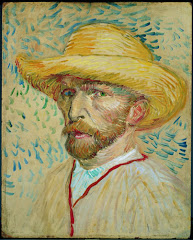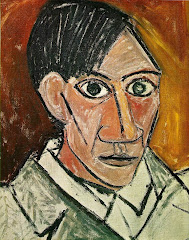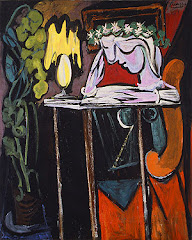Wednesday, December 10
French Day
Bonjour = Hello (formal)
Salut = Hello (informal)
Coucou = Hello (between young people you know well)
Allo = Hello (phone)
ça va? Comment ça va? = How are you? (informal)
Comment allez-vous? = How are you? (formal)
Je m'appelle Xavier = My name is Xavier
Je suis Xavier = I am Xavier
Et toi? OR Et vous? = and you?
Tu t'appelle comment? = What is your name?
Quel âge a-tu? = How old are you?
J'ai dix ans = I have ten years
neuf = nine, onze = eleven
Ça va = All right
bien = good
Très bien = very good
comme-ci comme-ça = OK
Susannah Neild is organising a French Day for Q Zealanders on Tuesday 16 December. Please wear French clothing (tres chic). We will be having a shared French lunch. Please bring some of the following:
Crepes Fillings
- grated cheese (Mal, Ollie)
- Ham (Lizzie, Josh)
- Tomatoes (Kyla, Kenya, Jas)
- Nutella (Tori)
- dessert sauce eg chocolate or berry sauce (Dan, Charlotte)
- sugar (Taylor)
- lemons (Matthew)
- strawberries (Konrad, Matt)
- Drinks - grape juice or coloured cordial (Nancy, Brianna, Blake, Estelle, Wiri)
- French bread (Kara)
- croissants (Max)
- cheese eg french style - brie, camembert, roquefort (Ash, Lauren, Sam
- olives
- Hash browns (Noah)
- French biscuits (Konrad)
BYO glass and bread and butter plate
No lunch needed that day...
Monday, November 24
Speech Winners
Friday, November 21
Hamburger Technique for Writing Speeches

1. The creative idea. (The planning and preparation of the hamburger.)
* Decide and know your topic well.
* Choose a subject that appeals to your audience's mind, emotions, and senses.
* Write down the conclusion you want to reach.
* Once you have all this, you are ready to prepare your speech.
2. The introduction. (Top hamburger bun - appetising introduction)
* Catch immediate attention. Open with a question, some startling statement, or a fact that will catch your audience's attention.
* Tell them the purpose of your speech. Many times inexperienced speakers ramble on and the audience doesn't know where the speaker is going with the speech.
* Let them know early the purpose of your speech and the audience will follow you just like they would follow the ball players in a rugby, netball or hockey game.
3. The body. (The fillings of your hamburger - Each layer of filling = tasty aspect of your topic. )
* Contains supporting ideas for the conclusion you want the audience to understand. Present your first key point and have your supporting information following-usually 1-2 supporting ideas under each key point. Do this with every point and you will not get lost. Just remember that you are working on the "meat (middle) of the hamburger."
* Include stories, personal experiences, examples and anecdotes when appropriate.
* Include facts, proof, or examples.
4. The powerful close/conclusion (Bottom of the bun = conclusion - holds your burger together)
* Tie in the ending with your opening. Take a look at your opening again and here is where you will tie it in to the ending. Your audience will remember this. Make it a well-remembered ending.
* Finish forcefully and confidently. That doesn't mean shout. It means get your point across with confidence. That you know it and believe it.
* This may be the only thing the audience remembers. That's right. After hours of planning and preparing your speech and honing it down to a 1 -3 minutes presentation, your conclusion/close/climax may be the only thing the audience remembers so make it memorable.
Speech Writing
My speech followed the hamburger technique 5
The message/information/story came through 10
The ending was effective & finished off the speech 5
My speech was well-researched 10
My speech was logically sequenced 5
My speech was suited to my target audience 5
My speech was in my words 10
Presentation
I enunciated my words clearly 5
My voice was easily heard 10
I learnt my speech off by heart 10
I used expression in my voice 10
I had good contrast in volume, pitch and pace 5
I used eye-contact 5
My speech was well-paced 5
Tag Games Structure
Friday, November 14
Q Zealand Election Results
 Co-Prime Ministers Ollie and Tim
Co-Prime Ministers Ollie and Tim Winners of the Party Vote - Powerful Party
Winners of the Party Vote - Powerful Party Powerful Party has formed a government with Tim and Oliver.
Powerful Party has formed a government with Tim and Oliver.Two of the promised policies have already been carried out: 10 snidges for homefun completion and lowering the sugar tax rate by 10% to a dangerously low 50%.
Now it's down to work to organise the class pet, along with feeding routines and care rosters. Tim has also promised to set up a plastic recycling system throughout the school. There's plenty for the government to work on between now and the end of the year.
Tuesday, November 11
Monday, October 20
Camp Challenges
- Go on the flying fox
- Go down the waterslide
- Go kayaking
- Avoid flipping your kayak
- Go eeling
- Don't get nibbled by eels
- Do abseiling
- Go horse riding
- Do the 3 wire rope across the slimy green blood sucking leech infested pond
- Make edible billy stew food
- Only swim intentionally
- Keep quiet until 0630
- Win Cluedo or Commando Raid
- Hit the target for Slug Gun shooting
- Hit the target for Archery
- Eat the food put in front of me
- Don't be fussy
- Use good table manners
- Don't moan, whinge, complain
- Keep my part of the dorm / tent tidy
- Keep my belongings together - tidily
- Don't snore
- Work co-operatively
- Listen to team members' ideas
- Encourage everybody
- Help each other
- Do your fair share of duties
- Obey all adult requests willingly
- Don't sulk
- Stay positive all week
Friday, October 17
Argument Writing - Election Speeches
Lauren / Ash: We are standing here today because we want to make a difference
Kenya / Konrad: Vote for Us
Charlotte / Josh: What will make you happy?
Brianna / Kara: We are standing up here today for something we believe in.
Tori / Ollie: How many Germans are there here? Well it doesn't matter because this is Q Zealand's election.
Blake / Matt: There is only one way. It's the right way. It's the Future Green way.
Lizzie / Logan: I'm standing here today because I want to be Prime Minister of Q Zealand.
We think the Blake / Matt comment is good because it is strong and threes are good.
We think the Brianna / Kara opening is good because it's easy to add on to and they could get straight to the point (Tori)
Here are our Success Criteria for our election speech:
- Ask questions
- Something bold and attention grabbing
- Keep to one subject at a time
- Keep it interesting by making it short, sharp and to the point
- Message should be really clear
- Show some detail of the policies
- Have a decent amount of info
- Include some sets of three
- Have a bold ending
Wednesday, October 15
Maths topic - Measurement: Time
- Read digital time
- Read analog time
- Converting analog to digital and vice versa - http://www.numbernut.com/basic/activities/dates_4bar_diganalog.shtml
- am and pm
- 24 hour time -http://www.bbc.co.uk/skillswise/numbers/measuring/time/timesanddates/
- Daylight saving
- how to know the exact time
- What is Greenwich mean time
- Time Zones http://www.time-for-time.com/zonesworld.htm
- AD and BC
- How time was invented
- time travel
- How to make a Tardis
Tuesday, October 14
Camp - Why?
- to learn new skills
- to practice being away from our families
- to have some excitement
- to practice being responsible
- to make new friends
- to try new challenges
- to be adventurous
- to face our fears
- to spend time away from school
- to do things we don't usually do
- as a privilege for working hard during the year
- to get to know each other better
- to achieve personal goals
- to learn to work with others
- to be independent
- to practice our leadership skills
- to work co-operatively
- to get escape electronic devices
- to go faster than Mr McCallum on the mudslide
- to get fitter
- to learn to solve problems
Monday, October 13
Tutpup

Tutpup.org - It's an odd name for a website, but good for practicing your Maths in a competitive way. Earn awards, challenge people from all around the planet and get improve your Maths at the same time. It's a lot like Mathletics, but doesn't cost anything.
When you register, make sure you tell them you are in Room 13 and your class code is 13131313. That way I will be able to keep track of how you're getting on.
Enjoy...
Monday, September 29
Narrative Writing
She stomped up the aisle like an elephant
Stones that are a sharp as a hedgehog
The courageously cold wind blew against Vanessa’s face
Hi eyes felt as if they were two big heavy anchors
He jumped out of his sleeping bag like a dog gone mad
Darkness was already creeping in, wiping away the remains of daylight
There was a mountain of history homework
She collapsed onto her bed like an exhausted bird that had just lost its mother
She squealed excitedly like a small child receiving a birthday present
Her words were swallowed up by the evening breeze
Their shadows crept up behind them like two grey ghosts ready to attack
The spark of hope became a flame
They were in helicopters and there were army tanks and there were helicopters hovering in the air like a swarm of bees.
(He shot the helicopter)
His bullet accelerated through the helicopter’s tail fin like a hole punch through a piece of paper
He ran home faster than a cheetah
He was sweating like a waterfall
The trees’ wet slippery branches looked like lots of spiders in the night
His eyes were blue like the sky on a summers’ day
Here are some attempts at making a dull sentence more interesting...
Instead of, "I walked out of the room, crying":
I slopped slowly out of my room crying like a baby who had just lost its dummy
I stomped out of my room almost drowning in my own tears
Instead of, "I sat down on my bed":
- I sat on my moist, soft bed like I had just run a marathon
Instead of, "The night was dark and cold":
The night was dark and gloomy like the mood after a funeral
Instead of, "The sun was shining":
The sun was shining like a star on a clear night
Instead of, "I was happy":
I was as happy as a perky pig
Instead of, "The house was empty":
The house was as empty as the Sahara desert
Instead of, "I was walking to school":
I was slowly creeping towards my long loved school
Instead of, "He held the ball in his hands":
He held the ball like a squirrel holding a nut – Lauren
He gripped the ball in his huge scaly hands - Ollie
He tightly held the bouncy round figure in the palm of his hands like a lion with his newborn cub – Georgia
He gripped the slippery sloppy ball in his sweaty hands – Ashleigh
He held the ball in his hands like an egg on a spoon – Taylor
He held his flat beach ball in his sopping wet hands - Malachi
He held the slippery wet ball in his hands. It felt like slug mucus - Estelle
He held the slightly egg-shaped red and green stripy ball in his slightly tanned hands – Kara
He squeezed the ball in his hands like he was choking a slimy fish – Konrad
He held the ball in his hands like a dog with a toy in its mouth – Josh
He held the big squishy ball in his wet sweaty hands – Noah
He held the hot, heavy ball in his huge, heavy hands - Tori
Instead of, "It was raining":
It was raining so hard that in a couple of seconds I was as wet as a waterfall – Jasmine
It was raining heavily like a thousand buckets of water being poured over your head – Oliver
The little droplets of rain pattered on the roof like a kid rustling a piece of paper – Georgia
It was raining so hard that it felt like getting hit by hundreds of bullets – Noah
The dark grey sky was bucketing down freezing cold ice drops on a gloomy night – Tori
It was pelting down with gloomy dampness looming over the lands like the a waterfall pouring out from the heavens – Nancy
It was raining heavily it sounded like guns shooting – Taylor
It was pouring down drops of water from the sky like a waterfall falling off a cliff – Daniel
Friday, August 22

Writing Surface Features Ladder
I'm pretty happy with the way you're working your way up the Basic Facts ladder, so knowing how much you like to improve your skills I've decided to do the same for Surface Features in Writing.
Most of what is contained in the levels comes straight out of the Writing Matrix (from the Ministry). Most New Zealand adults are at Level Four, so if you make it to that stage, know you're doing really well. Our Riverdale School expectations are that students will achieve Level Three by the time you move on to Intermediate.
The first thing is to work out where to start, then you can start climbing. The important thing when climbing a ladder is to focus on the step you're on and then your next (learning) step.
Level 4
35. Commonly Misspelled words list
34. Uses brackets correctly
33. Uses colons correctly
32. Uses semi-colons correctly
31. Uses ellipses correctly
30. Spellrite List 7
Level 3
29. Paragraphing
28. Spellrite List 6
27. Correct use of apostrophes
26. Spellrite List 5
Level 2
25. Writes sentences correctly with fullstops in the right places
24. Writes direct speech correctly
23. Use tense consistently
22. Have subject-verb agreement
21. Write titles correctly
20. could of / have, would of / have, should of / have
19. to / two / too
18. their / there
17. your / you’re
16. who’s / whose
15. we’re / where / were
14. Spellrite List 4
13. I / I’m / I’ll / I’ve
12. Writing numbers correctly
11. Capital letters for proper nouns
10. Capital letters for beginnings of sentences
9. Spellrite List 3
8. ‘Me and John’ v ‘John and me’ or John and I
7. Uses question marks correctly
6. Correct use of ‘done’, ‘did’ and ‘have done’
Level 1iii
5. ‘a’ or ‘an’
4. Spellrite List 2
3. Write simple sentences correctly
2. Writes capital letters and full stops for beginnings and ends of sentences
1. Spellrite List 1
Thursday, August 21
Piggity Event



We had a great time at the City Library, singing the Piggity song for the Library Week celebration. Erna Ferry read the story really well. The Jig family was such a hit that many of the pre-school children posed for photos! Thank you to Mrs Peck for playing the role of Mrs Jig. It will be a worthy addition to your C.V!
Then... Room 13 sang the Piggity song. Lauren sang her solo like an angel and Erna Ferry accused the children of singing so well that they made her cry. It is almost as if the kids had to do a singing audition to get into Room 13 this year!! Andrew Mock did a great job of helping to improve our performance. We are very grateful for his time and energy.
I was approached by a representative from Radio Control who is interested in having us sing the Piggity song on the radio in about a month... We are so lucky to be a part of all this.
Monday, August 4
National Cross Country Event Report from Kara

I came 11th out of 24 people in the cross country today. I was in front for the first 300 metres. I looked really small in the start straight (see picture - I'm wearing yellow). Dad called me a little fish. I was overtaken at the first corner by the first two girls. I blew on the first hill and gradually dropped back.
Here is a picture of me in the first straight. The girl who won is in the Wellington Olympic Club. The course was really good and hilly.
Maori Kites - Literacy (Reading and Writing) Activity

- What are three different names for Maori kites?
- What materials were used traditionally to make kites? (name three or four)
- What were the traditional uses for kites?
- Draw three pictures of different Maori kites and the designs that might be used on them
- Summarise and illustrate a legend that is about kites.
Sunday, July 20
Nga Toi

- What does the koru represent?
- Name three places where you might find koru?
- Find three different koru designs. Do a careful drawing of each one and write an explanation of what it represents.
- Publish your findings on an A4 paper (due Friday)
Friday, June 27
Big Day Out

What a fabulous day we had on Friday - despite the weather. Q Zealanders' behaviour was outstanding, as usual. Thank you to Kylie, Dianne and Raewyn for helping us out. Hopefully you enjoyed it as much as the kids and I did!!
We started at the Science Centre where we enjoyed looking closely at the Tangata Whenua exhibition. Mrs T designed a great activity sheet to keep us busy. Kara managed to draw the entire carving of the Okatia legend - probably 4 metres high? It was really interesting to find names like Vautier and Hokowhitu and Te Awe Awe, and to discover they weren't just made up to name parks and streets.
Our next stop was the City Library, where we were able to chill out in the Basement and Children's zone. We found out that the library had four copies of Piggity-wiggity Jiggity Jig,
 but they had all been issued. Nancy got out 10 books to read over the week end and Konrad had his library fines waived!
but they had all been issued. Nancy got out 10 books to read over the week end and Konrad had his library fines waived!The sun came out for us as we left the library after lunch to race around the Square. I went with the Hearts - Matthew, Tim, Logan, Sam, Kara, Max, Ash, Nancy. Miss Bradshaw had designed a cool scavenger hunt and we were able to find all but one photo. We found out from Miss Bradshaw that it was a tiny sticker on the back of a seat! I was really impressed with Logan's observational skills and I thought Nancy, Matthew and Tim used great tactics. Most importantly the Hearts worked really well as a team and everyone made a contribution.
After the hunt, Jim and Lauren limped back to the Art Gallery with the rest of us who didn't have sore ankles and possibly broken toes. We were able to look closely at John Bevan Ford's exhibition of paintings and sculptures. Estelle and Brianna spotted the fact that many of his works contain cloaks and we discovered that they symbolised protection. Of course this connected with the cloaks we made earlier in the week with Mrs McCullum. I found out later that the three tall carvings by the Council building in the Square were also carved by John Bevan Ford!
We are going to have a go at making a small, but highly detailed picture for our Term Two portfolio cover in the John Bevan Ford-style. Here is a link which might help: http://www.exhibitionservices.co.nz/exhibitiontours/show/john-bevan-ford
Wednesday, May 21
Science in Sport Project - Forces and Motion

Choose a sports skill. Improve your skill using science and practice.
Science ideas can be based on gravity... friction... Newton's laws... inertia... air pressure... aerodynamics...
Record the process - from brainstorm, early diagrams and plans, measurements etc.
Use a variety of media: text, photos, video, diagrams, PowerPoint, podcasts etc
Assessment
Explaining Science Ideas.
Practitioner: We can explain two science ideas in our sport using precise science vocab
Expert: We can clearly explain a variety of science ideas (3 or more), using precise science vocabulary to a high standard.
Apprentice: We have some, recordings of our process using a variety of media.
Practitioner: We have regular recordings of our process using a variety of media.
Expert: We have detailed, regular recordings of our process using a variety of media.
Tuesday, May 20
Personal Investigations
Most of you will already have worked out what topic you will do this term. Remember your topic needs to include some research, using books, internet - or you can learn from people - as Estelle did when she interviewed her Niuen granddad - or you can learn by doing as Brianna did when she tested out all the playgrounds in Palmerston North.
This term some of you will need to narrow your topics a little. Instead of asking "What can I find out about ... egg plants? ... worms? ... the Universe?", you'll need to ask a more specific question. eg "What are an emu's predators?" or "What are the Palio Contrade and what are their symbols?" or "How were Medieval castles defended?"
Of course if you are learning a new skill or designing / creating / constructing something new, then this won't affect you.
Some of you have already started your next investigation. If you haven't started yet, you need to get moving. While it is possible to do an investigation in a couple of days, this should be a term's worth of effort.
Friday, May 16
Basic Facts Ladder

The Basic facts ladder is a tool to assist your Basic facts knowledge.
This progression is to help you with the next learning step. Ask your grown-up to help you, then I'll do checks with you back at school.
Have fun climbing the ladder , look ahead and don't be scared of heights.
Stage 7
57. Divisibility rules for 4, 6, 8
56. Divisibility rules for 2, 3, 5, 9, 10
55. Simple powers of numbers up to 10. eg 5 to the power of 2 = 25. 5 to the power of 3 = 125
54. Square numbers to 100 and corresponding roots eg 7 to power of 2 = 49. Square root of 49 = 7
53. Common factors of numbers to 100 eg of 48 and 64 = 1,2,4,8,16
52. Least common multiples of numbers to 10 eg 24 is LCM of 6 and 8
51. Fractions – decimals - % eg 75% = 0.75 = ¾
50. Knows all division basic facts
Stage 6
49. Multiplication basic facts with 10’s, 100’s and 1000’s eg 10 x 100 1000 x 10 400 361 x 1000
48. Division facts for 6 x tables
47. Division facts for 4 x tables
46. Division facts for 3 x tables
45. Multiplication facts for 9 x tables
44. Multiplication facts for 8 x tables
43. Multiplication facts for 7 x tables
42. Multiplication facts for 6 x tables
41. Multiplication facts for 4 x tables
40. Multiplication facts for 3 x tables
39. Subtraction facts from 10-20 eg 16 – 8, 19 – 2, 13 – 4
Stage 5
38. Multiples of 100 that add to make 1000 eg 400 + 600 300 + 700
37. 10 times tables division facts
36. 5 times tables division facts
35. 2 times tables division facts
34. 10 times tables
33. 5 times tables
32. 2 times tables
31. Subtraction from 10 eg 10 – 5 10 – 8
30. Add combinations up to 20 eg 11 + 6 14 + 3
29. Combinations to make 20 eg 15 + 5 14 + 6
Stage 4
28. Multiples of ten (decades) to 100 eg 30 + 70, 40 + 60
27. Ten and facts eg 10 + 4, 7 + 10
26. "tens in decades" e.g.10's in 80, 10's in 30 between 24 and 25
25. Doubles to 10 + 10 eg 9 + 9, 7 + 7
24. Subtraction combinations up to 10 eg 7 – 4, 10 – 2
23. Addition combinations up to 10 eg 4 + 3, 6 +2
Stage 2 -3
22. Doubles that add up to 10 eg 5 + 5 6 + 4
21. Subtract up to 5 eg 4 – 2 3 – 3
20. Subtract from 5 eg 5 – 4 5 – 1
19. Add combinations to 5 eg 1 + 3 3 + 0
18. Combinations to make 5 eg 2 + 3 5 + 0
17. Addition with 5 e.g.5 + 2, 4 + 5
16. Addition combos to make 10 e.g.4 + 6, 3 + 7
15. Recognise patterns to 10 e.g.tens frame patterns
Stage 0-1
14. Say number before up to 10 eg -7, -9, -10
13. Say number after up to 10 eg 5-, 8-, 7-
12. Say number before up to 5 eg -3, -4, -1
11. Say number after to 5 eg 4-5, 3-4
10. Order number cards eg 0-10
9. Write numerals 0 – 10 correctly
8. Count backwards from 10
7. Tens frame patterns to 10
6. Recognise numerals to ten
5. Finger patterns to 10
4. Recognise numerals to 5
3. Know dice patterns to 6
2. Finger patterns to 5
1. Count forwards to 10
Monday, May 5
Tricky Triangles
WALT identify different sorts of angles
- Write the learning intention into your Maths book
- Follow this link:
http://www.bbc.co.uk/schools/ks3bitesize/maths/shape_and_space/angles_1_1.shtml - Find out about the different types of angles
- Draw each type into your Maths books
- Go to "next" and play the Snap game - each person in your team should have a go at this.
Wednesday 7 May
WALT identify different sorts of triangles.

- Write the learning intention in your Maths books
- Use the Internet to find different sorts of triangles.
- Copy three of each type into your book and label them
- Be able to explain what is special about each one.
Tuesday 6 May
- Write the heading "Tricky Triangles" in your Maths book, followed by 'WALT identify the properties of different types of triangles.
- Use this link to watch the animated movie about triangles: http://nrich.maths.org/public/viewer.php?obj_id=5968
- write a sentence in your Maths book describing what you think the movie is about.
- Use the coloured paper to create some triangle designs of your own.
Wednesday, March 19
Piggity Wiggity Lyrics
Was a long sort of name for a short sort of pig
His dad was a chef at a city café
He made croissants and quiches and soup-of-the-day.
Jig jig-jiggity, jig jig-jiggity,
Piggity-Wiggity, Piggity-Wiggity,
Jig jig-jiggity, jig jig-jiggity,
Piggity-Wiggity-Jiggity Jig.
But at bedtime one night,
Having stories with Dad,
Piggity-Wiggity felt a bit sad
He knew that it couldn’t be terribly wrong
But nobody else had a name that was long.
Piggity-Wiggity-Jiggity Jig
Was a long sort of name
for a short sort of pig.
His dad tucked him up in his comfity bed
“I have a wee story to tell you,” he said.
Jig jig-jiggity, jig jig-jiggity,
Piggity-Wiggity, Piggity-Wiggity,
Jig jig-jiggity, jig jig-jiggity,
Piggity-Wiggity-Jiggity Jig.
We wanted a name
that had rhythm and style
That would perk up your morning and brighten your smile
A name that was dynamite, different and daring
A name that epitomised kindness and caring
A marvellous melody, music to hum
A name that would pound like beat on a drum!
Piggity-Wiggity’s confidence grew
His world became sunshine
because he now knew
That Piggity-Wiggity-Jiggity Jig
Was a smart sort of name
for a cool kind of pig.
Jig jig-jiggity, jig jig-jiggity,
Piggity-Wiggity, Piggity-Wiggity,
Jig jig-jiggity, jig jig-jiggity,
Piggity-Wiggity-Jiggity Jig.
X2
Monday, March 10
Piggity's BIG Day
Thursday, March 6
Kia Ora
Mr Whyte came to visit me today. He tells me that he is really enjoying working with you Q Zealanders (of course).
I'm missing you all and hoping that when I visit the Orthopaedic Surgeon next Wednesday he'll tell me that my shoulder is improving, I won't need surgery and I can come back to work very soon.
I would love to hear from you - you could email me: tlcurrie@gmail.com
Keep smiling, Dudes
TeeCee
Monday, March 3
Thank you
Year Sixes - do your best to be great leaders and role models - as you already have this year. I'll be talking to Mr Whyte about which of you might be selected for the Young Leaders Event early next term.
I'm missing you all and I'm looking forward to seeing you soon...
TeeCee
Monday, February 18
Congratulations to Job Applicants
Ashleigh: Sign Writer, Accountant, Checklist Charlie
Blake: Green Team Leader
Brianna: Environmental Spy Person, Miss Clean-it, Scribe, Distribution Agent
Daniel: Communications Consultant
Charlotte: Art Advisor
Elizabeth: Teller, Payroll, Police
Estelle: Music Roadie, Scribe
Georgia: Checklist Charlie, Distribution Agent, Teller, Scribe
Josh: Sports Resource Guy, Art Advisor
Jim: Climate Controller
Kara: Teller, Sports Resource Girl, Distribution Agent
Kenya: Miss Clean It, Payroll Officer, Sign Writer
Logan: Police, Encourager, Green Team, Resource Regulator
Malachi: Accountant, Odd Jobber Daily Notices Reporter
Matt: Communications Consultant, Odd Jobber
Matthew: Police, Gringotts Bank Manager, Resource Regulator, Green Team
Max: Technician, Computer Help Desk, Police
Megan: Health Officer, Checklist Charlie
Nancy: Art Advisor, Accountant
Noah: Police, Encourager, Resource Regulator, Communications Consultant
Oliver: Technician
Robert: Accountant, Technician
Sam: Chief Distribution Agent, Accountant
Sylvia: NP, Accountant, Scribe
Taylor: Chief Technician, Encourager, Mr Staple, Resource Regulator
Tim : TC’s PA, Accountant, Communications Consultant, Encourager
Tori: Quiz Miss, Payroll, Sign Writer, Checklist Charlie
I haven't given anyone more than three jobs so far. Payroll staff will start their job this week. The jobs underlined will start being paid this week.
Come on Q Zealanders - if you don't apply, you can't get paid.
Spelling Programme - Term One
Most of you will have 10 spelling words to learn each week.
The first place to get your words is from any that you got wrong in your Friday test the week before.
Next, find errors in any of your books and learn them.
If you still don't have 10 words, select enough topic words from the whiteboard list to make up to 10 words.
After you have checked your list with TC, you will do a buddy test (with your random buddy) - usually on Tuesday.
Your parent test can be on Wednesday or Thursday nights, then the Friday test on.... Friday.
Etymologists Group
- Find a word in the dictionary which you find interesting
- Copy the word with the pronunciation in brackets beside it
- State whether it is a noun, verb, adjective etc.
- Read the definition carefully and write it in your own words
- Put the word into a sentence which demonstrates its meaning
- Write the origins of the word
- Memorise the word and try to use it at least twice throughout the week
Friday, February 15
Thinkers' Keys

What a fascinating picture... What could it be???
- Round up your Random Buddy and come up with 10 possibilities - be very creative
- Put your ideas into one Activity Book
- Copy them onto a Word Document on the computer (have your page landscape)
- Type your names onto it
- Copy and paste the graphic from above with a brief explanation of your imaginative concept.
- Print it off and add detail and colour to the picture.
Thursday, February 14
Cabinet Ministers
Class Council Election
Friday, February 8
Personal Investigations - A Parent's Perspective - Sarah Platt
To start with the concept of ‘Personal Investigations’ was a new to us; a long way outside the comfort zone of ‘regular homework’. It took our daughter - and us - a little while to get our heads around it. But as time went on and Rebecca got to see the interest and scope of what other students were choosing to do for theirs, she began to be comfortable with choosing her own personal investigations.
Once we got used to this approach to homework, we began to really appreciate what an extraordinary opportunity to learn and explore it offered. What she could choose to do was literally wide open - any interest whatsoever - any strength we might have to pass onto her - any topic that was pertinent to us - any curiosity that was tickling her interest. She has done eight personal investigations over the last two years, that range from video interviews, PowerPoint presentations on Mozart, designing and constructing a scale kitchen with appliances and finally raising $1000 for gifts to go towards saving lives by buying a fresh water pump and other things for an African village.
Sometimes we have had to encourage her in her choices, other times she has just come up with them. S ometimes she has done the investigations fairly independently, and other times they have taken a lot of parental guidance, input and encouragement. How much or how little we have wanted to contribute has been up to us. Sometimes her investigations have been easy, and others very demanding and time consuming. The beauty of them is that she or we get to choose.
I can’t stress enough what an amazing opportunity this kind of homework is. Every family has strengths, passions and interests that can be utilised. Every child has strengths and interests that can be tapped into.
I think now that Terri has been doing this for a couple of years, and there is now an extensive list of what students have been up to, it should be a little easier for new students and parents to get their heads around. All my husband and I can say is this is a fabulous approach to homework. You and your child will get as much out of it as you want to put into it. Make the most of this wide open opportunity. We don’t always get given such great scope in life.
Sarah Platt
Sarah Platt Artworks
www.sarahplatt.co.nz
Personal Investigations
1. Decide your topic
2. Write an investigation question
3. Email your investigation topic to TC by the end of Week Three
4. Decide how you will present it
5. Do your research
6. Carry out your presentation
7. Present your investigation to Room 13
8. Get feedback from Q Zealanders
9. Fill in self assessment sheet and insert into your Portfolio
You need to choose a topic which interests you – here are some previous ones:
- How can I invent a new game?
- What techniques did Vincent van Gogh use?
- How can I make a beer powered radio?
- How can I learn to do swing bowling?
- How can I choreograph a dance?
- How can I write some music?
- How can I design a new airliner?
- What are some of the buildings in Scotland?
- How did Henry VIII’s wives die?
- How can I learn to draw a face?
- Can I make a digital game?
- How can I make a papier mache horse?
- How can I make a wooden box to store our sports gear?
- How can I build a model of the Eiffel Tower?
- How can I design a new kitchen?
- How can I design a new icecream flavour?
- How is a swimming pool kept clean?
- What is the Chinese Zodiac?
- How can I build a wind turbine?
- How are igloos built?
- How can I raise funds to buy a water pump for a village in Africa?
- How can I build a hedghog shelter?
- How can I make a sweatshirt?
- How can I make a skateboard / scooter?
- How can I build a volcano model?
Presentation methods must all include a talk and should demonstrate what research was done. Here are some options (but not the only ones):
- A booklet
- A poster
- A speech
- A demonstration
- A PowerPoint
- A model
- A blog
- A game
- A dance
- Whatever it is you have designed and made
- A song...
So get started now. Begin with any topic you are interested in. Not completing an investigation is not an option!
Homefun
You will need to ask your adult to sign your diary each day to show they have seen it. It will help you if you have a regular homefun routine. Aspects of the routine you will need to work out with your adults are:
- when the homefun will be done
- where the homefun will be done
- when and where your adult will sign the book
- where the book (and any other equipment required to complete the homefun) will be put once it has been signed - I suggest it should go straight back into the school bag.
Homefun will be:
- Daily reading (books - either fiction or non-fiction, magazines, newspapers etc) - at least 20 minutes Monday, Tuesday, Wednesday, Thursday and Friday - Sunday)
- Basic facts practice (more on this later)
- Deadline work that hasn't been completed in class time
- Regular spelling
- A personal investigation each term (more on this later)
Homefun is checked daily at school. There will be a S100 reward for 90+% completion and S200 reward for 100% completion per term.
Under NO CIRCUMSTANCES should Personal Equipment be Named
Swimming
Brain Food

- Non 'Juicyish' or messy fruit or vegetables such as apples, bananas, grapes, apricots, carrots, celery, dried fruit, cherries or cucumber.
- Crackers, cheese, popcorn, unsalted nuts, buns and sandwiches
The food must be healthy - no salty, sweet or fatty foods please.
All students need to have a drink bottle with water at school every day also.
Rachel (Nutritionist to the Hurricanes, Turbos and Room 13), please comment. We would like your expert opinion on this important matter.
Thursday, February 7
Statistical Investigations
For Maths we are learning to carry out Statistical Investigations - into use of computer / digital / communications / information technologies in Room 13 homes. We have all been involved in designing an investigation and gathering data.
Now we are using Excel to graph our findings. We are working out what type of graph suits the information we have.
What to do with our graphs?
Once you have decided which graph is most useful:
- Copy and paste your chosen graph onto a Word document.
- Give it a title that people will easily understand
- Type a wise statement about what you have found out from your investigation.
- Once okayed by TC, print it off to copy to your digital portfolio
Tuesday, February 5
Blog Comments
- You need to put your name to blog comments, otherwise I won't publish them.
- Check your spelling, because I can't publish things that don't make sense.
- Make sure your comment says something - I won't be publishing nonsense comments
Now... get commenting - Q Zealanders and your Whanau. We need to know your thoughts and opinions.
Room 13 Class Treaty
Article One: How we will Treat Each Other
We agree that we will:
- be courteous
- be unselfish
- be respectful
- be kind to each other
- help and support each other
- be fair
- not hurt each other physically
- not put each other down
- only borrow items with the owner’s permission
- encourage good behaviour
Article Two: How we will Treat Our Environment
We agree that we will:
- tidy up after ourselves and each other
- respect our environment
- have no physical action in the classroom
- look after our ICT equipment
- cause no intentional damage to our classroom or surroundings
Article Three: How we will Treat Our School
We agree that we will:
- be good role models and leaders to other children in our school
- make visitors and new people feel welcome
- look after the people who look after us
- do our duties and jobs with pride and honour
- not drop litter and consider picking up others'
- own up if we break / spill something
- own up if we do something we know we've done something wrong
Monday, February 4
Treaty of Waitangi




The Signing of the Treaty
The Treaty of Waitangi was first signed at Waitangi on 6 February 1840. It represented an agreement between the British Crown and over 500 Māori chiefs of New Zealand.
There are a number of reasons why a treaty was seen to be needed. These included the increasing lawlessness of traders and settlers so there needed to be some form of governance, and the interest of other countries such as France and America in colonising New Zealand. The Crown recognised New Zealand as an independent nation after the signing of the Declaration of Independence (1835); so any issues regarding governance needed the agreement of Māori.
This agreement took the form of the Treaty.
Waitangi Day
Approximately 45 Māori chiefs signed the Treaty at Waitangi on 6 February 1840. It was then taken to further meetings in the north, before several copies were made and distributed throughout the country to collect further signatures. This process took six months.
Although we commemorate Waitangi Day with a public holiday today, it was not always recognised as such. While annually marked and celebrated as a significant date in the history of New Zealand, Waitangi Day was not declared a public holiday until 1974, when it became known as New Zealand Day. The name was changed back to Waitangi Day in 1976 to honour the significance of the Treaty itself.
Traditionally, the Prime Minister, high-ranking government officials, and often the Leader of the Opposition attend celebrations at the Waitangi. However, in past years protests over the Treaty and subsequent Waitangi Tribunal claims have often meant that senior officials celebrate elsewhere.
Friday, February 1
Mihimihi
Tena koutou, tena koutou,
tena koutou katoa!!
Ko ……………………… taku ingoa.
No ……………………… ahau.
Ko ……………………… toku mama.
Ko ……………………… toku papa.
No reira, tena koutou, tena koutou,
tena koutou katoa
Thursday, January 31
Apply for Jobs

Start applying for jobs, kids. Earning Snidges is a big part of what we do in Q Zealand, but they don't grow on trees!!! You will be able to earn Snidges by getting a job, by completing work on time, doing your homefun and even starting up your own business.
This is a great chance to practice some parts of being an adult - earning, doing jobs, saving, spending.
You might make some mistakes, but it's better to do it now than when you get into the real world.
Type your job application (see the other post for layout) on a Word document, attach it to an email and send it to me tcurrie@riverdale.school.nz
Success Criteria for writing a persuasive job application letter:
- Very few errors in your writing
- Use the correct business letter layout
- Be persuasive about why you would be good at the job, not why you want it.
- Have at least three paragraphs - introduction and what job you'd like, reasons I should consider you for the job and a conclusion
If you want to be a chief anything, apply for the regular job eg if you think you'd make a great Chief Accountant, apply to be an accountant etc.
Go for it.
Quiddage Job Vacancies - QZealand Jobs
Business Manager S10.00
- Design a spread sheet for entering business names and business partners
- Hand out Enterprise Application forms when asked
- Keep an up to date record of all the businesses and business owners
- Give frequent updates to Gringots bank manager
- Collect business setup fees from new businesses owners and hand to Tee Cee
- Keep all business applications
Publisher
- Design a spread sheet for keeping track of Quiddage related printing jobs
- Agree on costs with Tee Cee and Q Controller (S30 - colour, S5 - b&w)
- Ensure people report any printing to you
- Bill business owners on a regular basis
- Remuneration: 50-50 split between publisher and Tee Cee
Caterer S10.00
- Make lunch box available on the sink bench on lunch delivery days (usually Fridays)
- At the end of roll call, ask the class if there are any further orders
- Take the lunch orders to the office, or if there are none, let office staff knows
- collect the lunches from the lunches van at the car park
- Distribute the lunches
- Return lunch box to the van
Chair Leader
- Put chairs up/down for students who are absent
- Grott students who don’t put up their chairs at the end of the day (S1)
- Grott students who leave their chairs out, thereby blocking others from passing their desks
- Put grotts directly onto board list
- add grotts to your board tally
Checklist Charlie S15.00
- Collect completed work, making sure it is all oriented the same way
- Peg the work together and store it in a box in the resource room
- Mark it off on a class checklist
- Remind students who haven’t completed task
- Report to Tee Cee when required
Climate Controller S10.00
- Open the windows at the start of the day
- Open or close windows during the day as required
- Learn (from Tee Cee) how to operate gas heater
- If required, open extra windows and doors (and close them at the end of the day)
- Decide on positioning of fan – and turn off or on when required
Communications Consultant S15.00
- Deliver messages or other items to other parts of the school quickly and without fuss
- Pick up messages or other items as required
- Take absentee names to the office
Computer Help Desk (chief) S15.00
- Find out what strengths help desk people have
- Make a chart (on computer) for Q Zealanders to refer to
- Help students who need computer assistance
Computer Help Desk S10.00
- Undergo and pass training course
- Assist computer users when required
Daily Notice Reporter S10
- Open up the daily notices at 9 am
- Read out any notices that relate to us
Distribution Agent (chief) S15.00
- Receive items for distribution; give equally to other distribution agents
- Assist with distribution
- Redistribute answer sheets when required
- Receive collected items from distribution team
- Place in neat pile and give to TC
- Work quickly and efficiently to ensure minimal time wastage
Distribution Agents S10.00
- Receive handouts from chief distribution agent and distribute to QZealanders
- Collect items from QZealanders and hand to chief distribution agent
Encouragers S15 (depending on effectiveness)
- Look out for reasons and ways to support and encourage Q Zealanders
- Keep watch for any Q Zealanders who may be feeling sad. Find ways to cheer them up.
(E.S.P) Environmental Spy Person.
- Check to see that all shoes are put neatly outside (in pairs, against the wall)
- Check that all bags are closed, that they are hung on hooks or placed neatly against the wall
- check that no rollerblades, scooters or skateboards are left outside the classroom
- Grott will be S5 if any students are caught not following these systems - This will be taken from the board chart of the offending student and added directly to your tally
Green Team S15
- Empty Room 13 Recycling bin on Mondays and Thursdays
- Empty the Recycling bins from the office area
Green Team Leader S20
- Help the Green Team
- When Mr Merriman tells you, ring Full Circle to collect our paper
- Make sure the sacks get put out
- Make sure the empty sacks are returned
Health Officer S10.00
- Get a bandage or icepack for people in need
- Return the icepack 15 minutes later
Librarian (Chief) S15.00
- Supervise and assist librarians
- Follow up overdue books
Librarians S10.00
- Locate and issue topic books for TC or class
- Arrange topic books on classroom library shelf
- Keep library shelf tidy
- Return and shelve classroom books as required
- Issue and return students’ books during library time
Mr or Miss Staple S15.00
- Staple, pin or tape work around the classroom as required
- Maintain displayed work by re-stapling etc. when necessary
- Remove wall displays
- Distribute the items to their owners
Music Roadie S10.00
- Get Tee Cee’s guitar when required
- Take it to school singing, assemblies, Hui whanau etc…if needed
- Put the guitar away
N.P (notices person) S10.00
- collect returned notices
- Keep a list of who has returned their notices, along with details such as parent helpers etc.
- Check to see who hasn’t returned theirs, and remind them after roll call
Odd Jobber S5.00
- Perform odd jobs as required
Police Chief S20.00
- Make up Police ID badge
- Be the person cases are reported to
- Make up case report book
- Train police to fill out case reports
- Supervise the police force
- Report case outcomes to TeeCee when required
Police S10.00
- Solve police cases allocated to you by the police chief
- Interview witnesses and suspects
- Report findings to the police chief
- Fill in a case report for each investigation
- Be alert
Quiz Master or Miss S15.00
- Write names of Quiz Contestants on the board
- Draw a card to establish starter
- Record winners
- Inform TeeCee when finals and grand finals are required
- Setup finals and grand final
TC’s P.A. S25.00
- Answer the telephone
- Take messages if necessary
- Check P.A box several times a day
- Delegate P.A. box contents to the appropriate people
Hat Person
- Grott (S2) anyone who wears their hat inside Q Zealand. Take from their tally and add directly to yours
Couch Carrot
- Grott (S5)anyone who sits on the couch without earning it
Q Zealand Times Editor S50.00 per 4 pages published
- Edit the Q Zealand Times newspaper
- Be responsible for journalists
- Encourage people to send in stories and articles
Q Zealand Journalists S20.00 per article accepted
- Write articles for the Q Zealand Times
Q Zealand Times Photographer S5.00 for each picture accepted
- Take photos for the Q Zealand Times, using the digital camera
Q Zealand Times Accountant S15.00
- Keep track of pay for Q Zealand Times staff and Q Zealanders who have articles accepted
- Notify the chief payroll officer monthly
- Send accounts out to advertisers
Resource Regulator (Chief) S15.00
- Supervise and assist Resource Regulators
- Make decisions about the upkeep of the resource room
- Take responsibility for the tidiness of the resource room
Resource Regulators S10.00
- Access and return resource room equipment for Tee Cee and QZealanders
- Keep resource room tidy and well organised
Sign Writer S15.00
- Write up notices on boards as required
- Keep conference lists organised and rewrite when necessary
- Write up strikes if necessary
- Re-do permanent whiteboard markings when needed
Wordsmith S5.00
- Write any words discussed in class discussions in the clear file
Time Keeper S15.00
- Set alarm when needed for deadlines or school events etc.
Chief Technician S35.00
- Be familiar with technical equipment (radio, TV, data projector, cameras, sound system, microphone and microphone stand)
- Set up and put away any technical equipment, including for other classes when required
- Train the apprentice/s
Apprentice Technicians S10.00
- Assist the Chief Technician
Sports Resource Guys S10.00
- Get P.E. Gear for classroom use
- Setup sports and fitness activities as required
- Return gear to correct places in the P.E. Shed
- Tidy P.E Shed (S20 per lunchtime tidy up to once a week)
Scribe S35.00
- Copy ideas from discussions that Tee Cee writes on the board
- Type it on the computer
Miss/Mr Clean it S30.00
- Clean-up jobs around the classroom
Art advisers S20.00 per art session
- Setup/pack up Art equipment
- Frame and name art works when needed
- Help TC put art on the wall
- Help to hand out art to its owners when it comes down from the wall
Quiddage Job Vacancies - Quiddage / Banking-related
Q Controller S80.00
- Advise Tee Cee on all the matters relating to Quiddage.
- Supervise Payroll and Banking.
- Assist Payroll and Bank staff where required.
- Report status of Payroll, accounting and banking to tee Cee on request.
- Ensure all the bank jobs are completed accurately and efficiently.
- Help train Gringots bank Manager.
- Assist (where necessary) in training of Gringots staff.
- Refine Q Note banking and withdrawal systems in conjunction with Tee Cee and the Gringots bank manager.
- Revise and improve Gringots banking systems
Gringots Bank Manager S60.00
- Learn and understand QNote banking and withdrawal systems
- Revise and improve banking systems in conjunction with Q controller, chief accountant, chief payroll officer and head teller.
- Train Gringots bank staff
Chief Accountant S40.00
- Learn and understand QNote banking and withdrawal system
- Revise and improve banking systems
- Supervise accountants
- Make up fair weekly rosters for accountants on market days
- Ensure banking is always kept up to date
- make sure any banking is organised and tidied up before leaving
- check and double check for accuracy of banking
- Work confidentially
Gringots Bank Accountants S30.00
- Learn to operate the Gringots computerized banking systems
- Set up accounts for all Q Zealanders and all businesses
- enter payroll information
- enter deposits and withdrawals in personal and businesses
- calculate equal division of business profits and losses
- calculate tax
- work confidentially
- fill in statements for Q Zealanders and businesses of their account balances regularly
Chief Bank Teller S30.00
- Make sure there are plenty of QNotes, withdrawal and deposit slips
- Get the QNotes out and put them away at the end of each market day
- Check with Tee Cee, and then print off withdrawal and deposit slips if required. Notify Tee Cee if QNotes are required
- Supervise tellers
- Make sure customer service is excellent
- Make up fair weekly rosters for tellers on Quiddage market days
Gringots Bank Tellers S20.00
- Distribute Q Notes to bank clients when presented with withdrawal slips
- Assist clients with banking when necessary
- Keep counter and withdrawal/deposit slips orderly
- Help to process deposits and withdrawal slips
Chief Payroll Officer S25.00
- Keep an up to date computerised record of all salaries
- Train payroll staff
- Supervise payroll staff
- Help payroll staff where required
- Check the work of payroll staff to ensure accuracy
- Ensure payslips are completed fortnightly
- Ensure there are sufficient payroll forms
- Work confidentially
Payroll Officers S20.00
- Collect Quiddage totals from classroom white board each Friday
- Write the totals neatly on a class list and hand to the bank manager
- Calculate salaries fortnightly, enter information on payslips, hand to chief payroll officer





















































